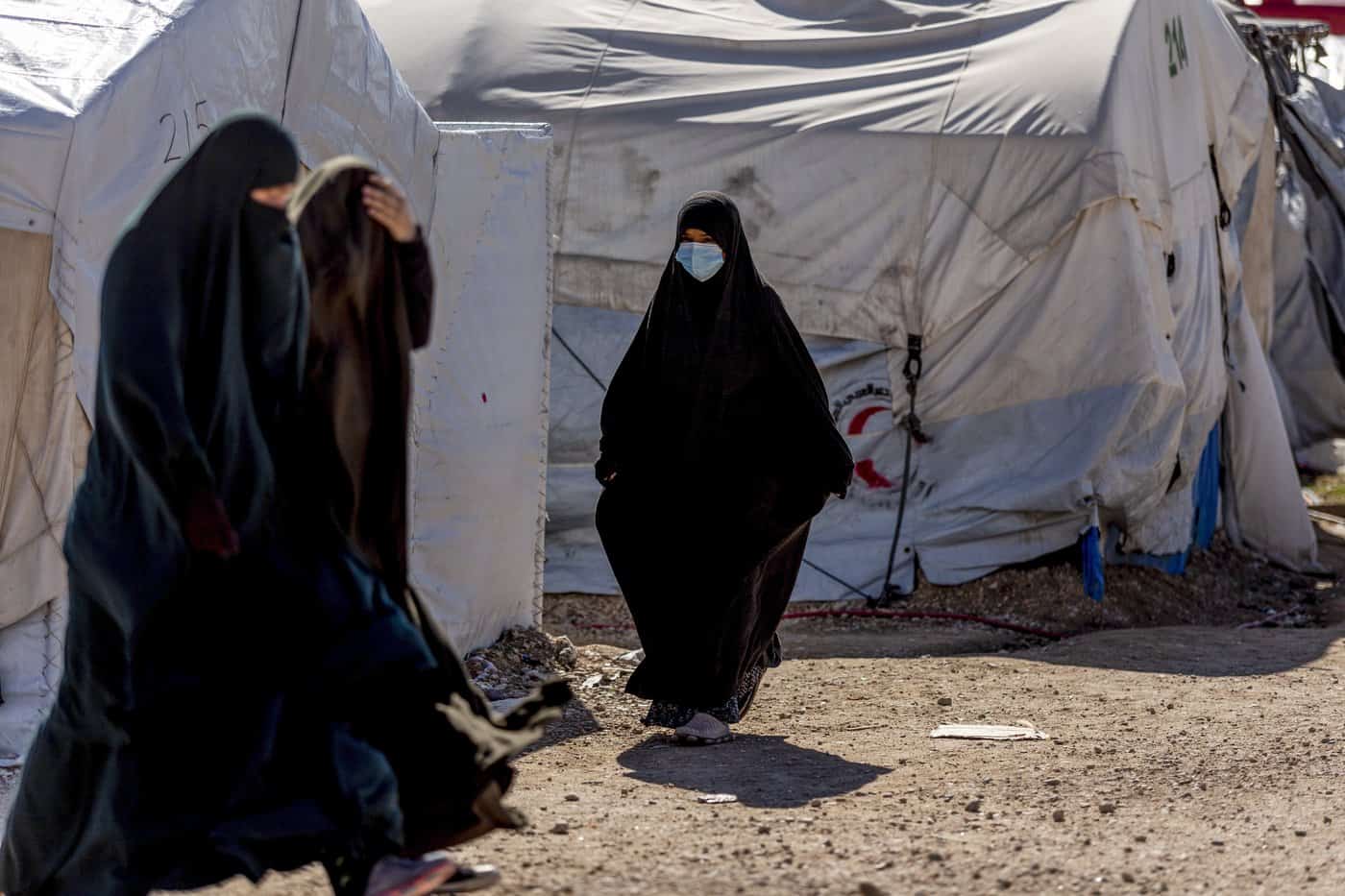Women held in Syrian prison camp set for Brampton court appearance
Published April 11, 2023 at 9:21 am

Two Canadian women arrested after returning from a prison camp in Syria last week are expected to appear in a Brampton court today.
The two were among four Canadian women and 10 children who landed in Montreal last week after being held for years at the al-Roj prison camp in northeastern Syria.
The RCMP says the two women are scheduled to appear for a bail hearing in Brampton on Tuesday (April 11) while the Mounties seek a terrorism peace bond against them under the Criminal Code.
The detainees in the camps are mostly women and children who were rounded up after the fall of the extremist Islamic State of Iraq and the Levant in 2019.
About 10,000 of them are foreign nationals from more than 60 countries outside Syria and Iraq, and the Kurds have asked those countries to repatriate their citizens.
Some are relatives of suspected ISIL fighters, but they have never been brought before a court.
Three of the women were arrested upon arrival, while the fourth was not detained and the 10 children are all with relatives.
Another woman who was among the group Canada repatriated from Syria was released on bail in Edmonton on Friday, pending a terrorism peace bond application.
A terrorism peace bond allows a judge to order the defendant to enter into an arrangement to be of good behaviour, potentially with conditions such as a curfew, or else possibly face a prison sentence.
The al-Roj prison camp is one of two displaced persons camps in the region that is now controlled by the Kurdish-led Syrian Democratic Forces.
United Nations secretary-general Antonio Guterres said last month countries like Canada have a responsibility to bring their citizens home from the camps, which he says have the “worst possible conditions” and are depriving people of their rights.
INsauga's Editorial Standards and Policies